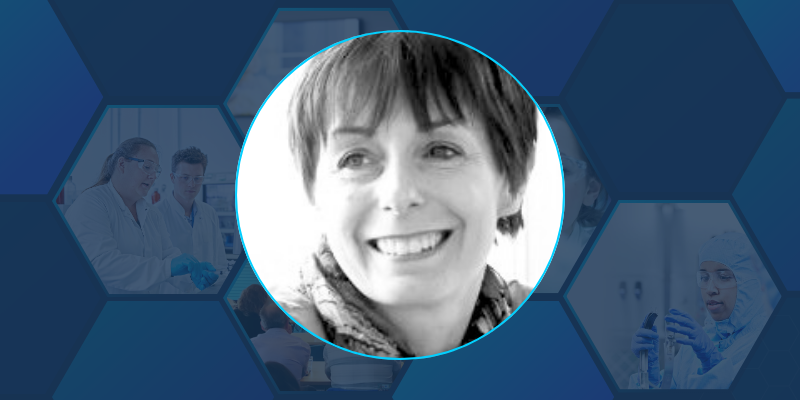In the second of this two-part series with Denise Sutton, we discuss Quotient Sciences’ clinical pharmacology offering in Nottingham.
Denise also highlights how we stay ahead of an evolving regulatory landscape, and how we work with our customers to determine the right program for their needs.
Missed the first part of this series? Read it here.
What types of clinical pharmacology programs does Quotient Sciences deliver?
At Nottingham, we offer comprehensive clinical pharmacology services that can be conducted either conventionally, with the drug product provided by the customer or a third party, or integrated with our drug product manufacturing capabilities as part of a Translational Pharmaceutics® program.
In Nottingham, we’ve been delivering a full range of healthy volunteer studies for over three decades, including first-in-human, single and multiple ascending dose (SAD/MAD), relative and absolute bioavailability, bioequivalence, drug-drug interaction (DDI), food effect, taste masking, ethnic bridging, ADME, and thorough QT cardiac safety studies.
Our customers benefit from consistent and seamless delivery by our experienced, multi-disciplinary teams led by a strong project management function and supported by wrap around data sciences services.
How do you deliver clinical programs in Nottingham and why would a customer choose Quotient Sciences?
One of the things that I believe makes us unique is the strength of our knowledge and the consultation that we offer from our scientific, medical, and regulatory affairs teams. We work with each of our customers to provide the right level of support needed for their program, using the knowledge we gain from the wide range of projects that we work on.
In some cases, a clinical design will already have been mapped out, and our role is to perform a review and provide suggestions. In others, we might be presented with a development challenge or a regulatory requirement, plus background data on the molecule. The team enjoys these challenges and the opportunities to review the information, consult with colleagues, and propose a clinical design.
Once we are in the delivery phase of the program, the team continues to support the customer as they progress through regulatory approvals, clinical delivery, and reporting. We know that quality, time, and cost are key factors, and our experienced project management team works hard to ensure competitive timelines and on-time full delivery. I am proud of our strong track record of consistently delivering on our promises to our customers.
Of course, we couldn’t do any of this without the wonderful people who volunteer to take part in our trials. We have a robust volunteer database, including many repeat volunteers, and those who have referred friends and family members to take part in trials following their positive experiences coming to Quotient Sciences. Our volunteer recruitment and screening teams process over 3,000 volunteers a year and do a phenomenal job in ensuring our studies enroll on time and in full, recognizing the importance of this key milestone in the success of our trials. With our volunteer centric approach, we also work hard to make our volunteers’ stays in the clinic as enjoyable as possible and have an excellent volunteer retention record.
Finally, I couldn’t describe our clinical services without acknowledging our wonderful clinical and medical teams. These groups show incredible commitment and flexibility to ensure we have the right resourcing for each project, data quality, and, of course, volunteer safety in mind. They are guided by our Principal Investigators who have over 70 years of combined Phase I experience. They are truly experts in Phase I trials and take a hands-on approach to designing and delivering trials in our unit. I sleep soundly at night knowing these talented and dedicated teams oversee our trials and volunteers.
One of the things that I believe makes us unique is the strength of our knowledge and the consultation that we offer from our scientific, medical, and regulatory affairs teams.
What differentiates a traditional clinical pharmacology program with Quotient Sciences from a Translational Pharmaceutics® program?
The Translational Pharmaceutics® platform integrates real-time manufacture of drug product with dosing in the clinic, and as a result, delivers significant time and cost advantages when drug product considerations are a key factor. For example, a formulation switch may be required, flexibility in unit dose or dose level may be needed, or the customer may have a limited amount of API. In any of these cases, on-demand drug product manufacturing with clinical testing from our facilities, effectively combining our CRO and CDMO capabilities into one program, makes a lot of sense.
In a traditional clinical pharmacology program we receive drug product from the Sponsor or their partner CDMO as any conventional CRO would.
Ultimately, the needs of the customer and their molecule are our priority and help shape whether we do a traditional clinical pharmacology program or a Translational Pharmaceutics® program. Whatever type of program, we take the time to fully understand our customers’ scientific, financial, and strategic requirements. We are happy to offer suggestions and explore different paths as required to optimize delivery.
What are your thoughts on the UK regulatory landscape and how are you addressing with this?
I consistently hear from our customers that navigating an evolving regulatory landscape in the UK can be incredibly challenging. I find this extremely frustrating, but I have complete confidence in our teams’ ability at removing this barrier. We are always happy to talk with customers about any questions or concerns they have regarding doing their Phase I research in the UK. Our experience is that getting to first subject first visit can be as fast (and often faster) in the UK as other regions. Our high performing multifunctional teams are skilled at accelerating through the critical path milestones.
Our in-house regulatory team is based in Nottingham and has strong relationships with the MHRA and the Health Research Authority (HRA). The senior team, in particular, is actively involved in reviewing and shaping new guidelines. We also engage with the authorities and trade associations to keep current with emerging trends and ahead of regulatory changes.
I am extremely proud of the fact that around 25% of the applications submitted to the MHRA each year come from Quotient Sciences. This high volume of submissions allows us to quickly understand and adapt to current thinking, both at the MHRA and within ethics committees. It also means that we have built a very talented team with extensive experience. As evidence of the practical impact of this, our approval times are consistently ahead of statutory timelines.
In a follow-up article, our VP of Regulatory Affairs, Kate Darwin, will provide more information on the UK regulatory process and the benefits of doing Phase I research in the UK.
Our experience is that getting to first subject first visit can be as fast (and often faster) in the UK as other regions. Our high performing multifunctional teams are skilled at accelerating through the critical path milestones.
Finally, any closing thoughts to share about the capabilities or team at Quotient Sciences - Nottingham?
At Nottingham, and at all our facilities, we’re focused on delivering the highest quality of service and making a meaningful contribution to our customer's programs. We know that the difference we make is in how we lend our expertise and dedication to accelerating the next generation of medicines toward their ultimate destination: patients.
Our customers repeatedly tell us how outstanding it is to witness project teams pull together to deliver their projects. They recognize the genuine team spirit and mutual respect between our colleagues who, for every program, set up to deliver quickly, embrace and resolve challenges as they arise, and provide consistently high service. Customers often comment that our teams really care.
These frequent testimonials are one of the many pleasures of my job, and I take great joy in sharing this feedback with my teams so we can all appreciate the impact that we have on customers’ Phase I programs. Whenever possible, we also share stories of the successful continuation of a molecule. It is so powerful to show the team that worked on a Phase I study, the direct impact that their work had on a patient who now has access to a new medicine.
Whatever type of program, we take the time to fully understand our customers’ scientific, financial, and strategic requirements... Our customers repeatedly tell us how outstanding it is to witness project teams pull together to deliver their projects.
Read part one of our interview
Get more information about our clinical pharmacology services or catch up on the first part of this two-part series where you can read about Denise’s background, the evolution of the Nottingham facility, and more information on the Translational Pharmaceutics® platform.
To get alerted about new blogs, news, and updates from our company, make sure you're on our mailing list. Subscribe for email updates.

